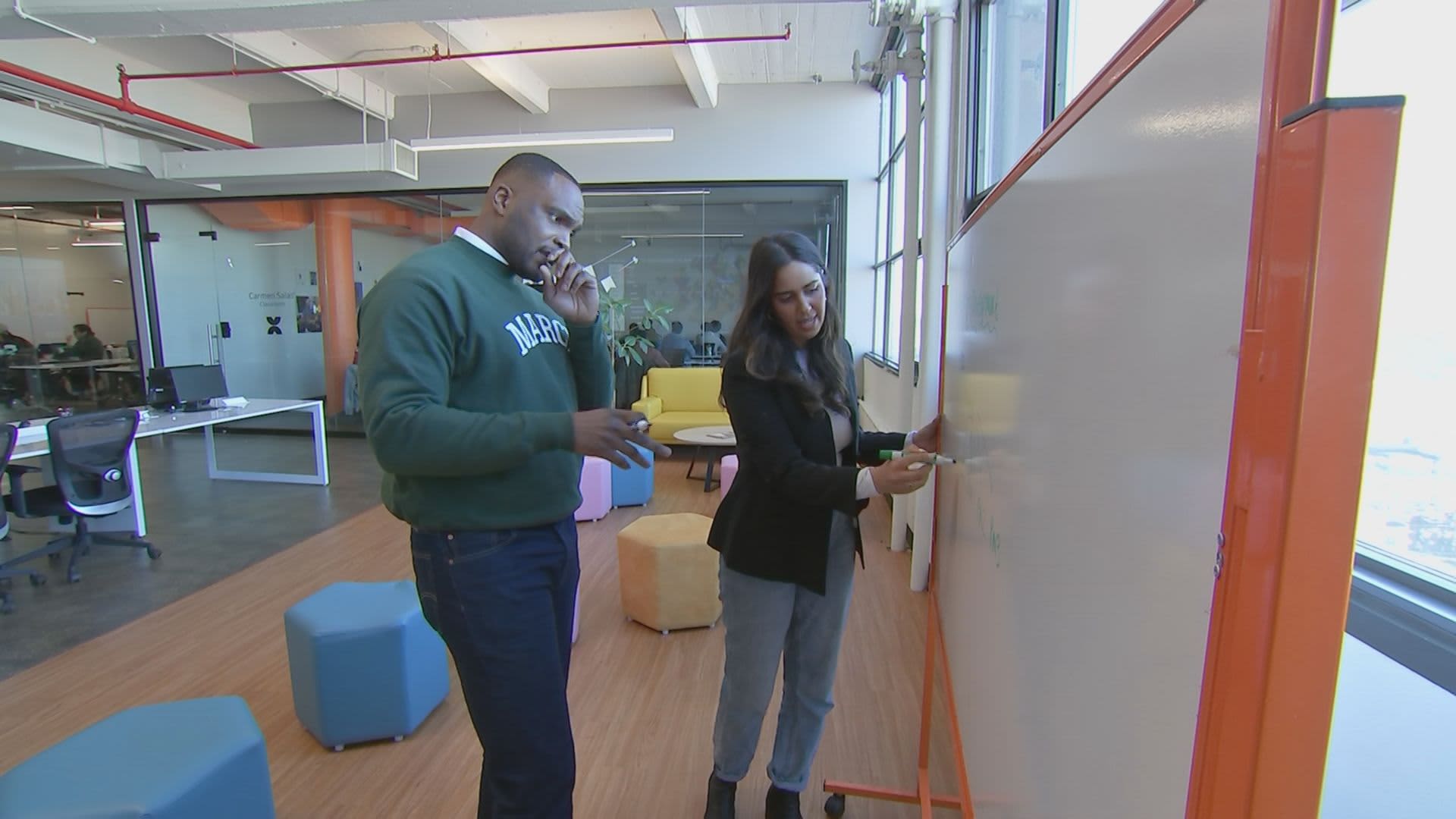Products You May Like
College can be difficult and expensive for all students, but for many young people of color, those challenges can seem insurmountable. The Marcy Lab School in Brooklyn, New York, however, has created an alternative path — a one-year program to help students get lucrative tech jobs that typically go to college graduates with a four-year degree.
“The story that’s not often told is what happens when a young person gets to college, and what we learned was that college wasn’t serving our students,” said Maya Bhattacharjee-Marcantonio, co-founder of The Marcy Lab School.
Creating an alternative to a 4-year degree
Bhattacharjee-Marcantonio and co-founder Reuben Ogbonna are former teachers who met through the Teach for America program and share a passion for education that goes beyond coding and software engineering skills.
“High-quality instruction and emphasis on community identity development and leadership development is what makes Marcy special,” Ogbonna said.
More from Personal Finance:
Colleges set to close even as top schools see applications boom
Falling behind on federal student loans causes other money problems
Nonprofit focuses on education to change face of angel investing
The program started in 2019 with nine students, and its classrooms are named after each of those first grads as a way to build a connection with the current students, who now number 67.
Their eight-hour school day starts with mindfulness: meditation, journaling and goal-setting. The curriculum focuses on teaching engineering skills, coding and networking.
Partnering with the business community
The co-founders worked with the local community to design a program to prepare students for upwardly mobile careers. They started with the tech sector and the support of several foundations, including Tiger Global Impact Ventures, Charles Hayden Foundation and Bedford Stuyvesant Restoration Corporation. They also have dozens of companies that support, train and hire graduates, including JP Morgan Chase, WW International and Squarespace.
“Spending years with our students has led them to see them as not only students who have a ton of potential but can be true hiring pipelines for their organizations,” said Ogbonna.
The program is also about building community and self-assurance. “I’ve learned to really advocate for myself and have this level of confidence, because Marcy provided that for me,” said Aneika Nanton, who is a student currently completing a paid internship with WW International as part of the program.
The school, still in its early stages, boasts an 80% completion rate. The average graduate receives a starting salary of $106,500.
“There are many students who are going to go to colleges that have graduation rates that are in the 30s or 40s [percentiles], that have average salaries for their graduates that are just above minimum wage,” Ogbonna said. “What I’d say is that those students aren’t getting a strong return on their investment.”
“We think The Marcy Lab School can scale to thousands of students here in New York City, and potentially have impacts across the country,” said Ogbonna.
Overcoming degree requirements
An increasing number of organizations have embraced the idea of skills-based hiring as the answer to obtaining the talent they need. But the percentage of jobs that require a four-year degree has actually increased. Last year, 57% of job postings for software developers/engineers required a bachelor’s degree, up from 51% five years ago, according to an analysis by data research company Burning Glass Institute.
“When it comes to actually hiring, it’s really tempting to cling to what’s most comfortable,” said Matt Sigelman, president of the institute.
Former Marcy attendee Devante Duncan said his mom wasn’t happy when she first learned her son had quit his pursuit of a bachelor’s degree to attend the school’s alternative program. Difficulty being able to register for the classes he needed for an engineering degree at a public university — and concern about taking on debt — made him eager to find another option. Duncan, who was one of the first nine to complete The Marcy Lab School, is now earning $140,000 annually as a software engineer at Squarespace.
“I was able to convince her that, you know, it was the right decision,” Duncan said. Once you see that paycheck, he said, “it’s hard not to be convinced.”
